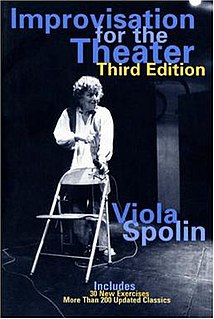A Quote by Richard Wilson
My sense of responsibility to the audience is to screen things that they would never see in a local theater.
Related Quotes
I think one of the things that is important, for me, though a lot of people would disagree with me, is that you be founded in theater so that you understand what an audience is, what kind of an animal it is and how to play with it. How to have fun with it, how to sympathize with it, all the things that an audience is. I don't think you're going to find that out unless you do theater.
One of the skills you have to master in theater is the ability to make the audience believe that things that aren't there are there - just like when you're acting against CGI. Also, in a theater, the people in the back row can't see the whites of your eyes. Or your lips moving as you deliver dialogue.
Plays have a celebratory nature that no other form has. Theater always meant celebration, a birthday, a reward for good grades. I felt at home in a theater. I loved being part of an audience. All the rules - the audience has to see the play on a certain date at a certain time in a certain place in a certain seat.




































